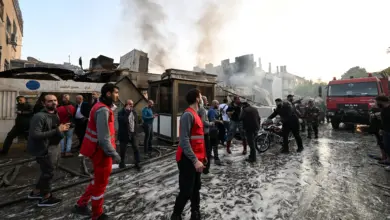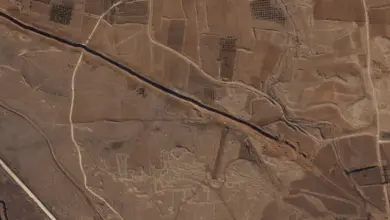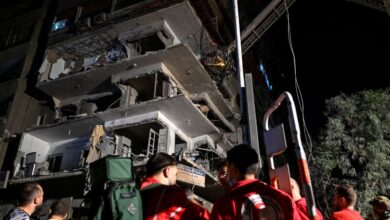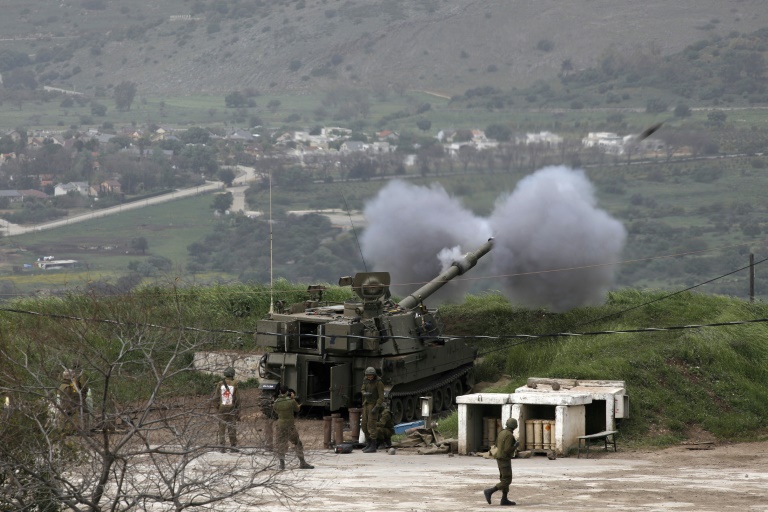DAMASCUS, Syria – The UN Security Council was to hold a second day of talks on Syria Tuesday after President Bashar al-Assad's tanks shelled the protest hub of Hama on the opening day of the Muslim holy month of Ramadan.
At least 24 civilians were reported killed across Syria on Monday, an activist said, among them 10 during protests after special evening prayers.
"Ten martyrs fell and several people were wounded by gunfire from security forces during protests in several Syrian towns after the 'taraweeh' evening prayers," Syrian Observatory for Human Rights chief Rami Abdel Rahman said.
Syrian tanks shelled the outskirts of Hama late on Monday, he said. The death toll on the first day of the Ramadan fasting month was 24, while more than 150 people were detained.
The fresh violence came as the Security Council held a first session of emergency talks on the deadly crackdown, with Western powers again demanding a condemnation of the violence, but the closed session ended with no agreement.
A top UN official told the meeting that on top of 140 people reported killed in a military offensive on Sunday, 3000 people have gone missing and 12,000 been taken prisoner since the anti-regime protests erupted in mid-March, diplomats said.
Britain, France, Germany and Portugal hope to revive a formal resolution condemning Assad's crackdown, a move which will be discussed on Tuesday.
Diplomats said, however, that it was more likely the Security Council would agree a statement, with no warning of UN action.
The UN meeting came after Assad showered praise on his troops to mark Syria's Army Day, saying in a speech that the military had "proved its loyalty to its people, country and creed."
"Its efforts and sacrifices will be admired. These sacrifices succeeded in foiling the enemies of the country and ending sedition, preserving Syria."
Russia and China, two of the five permanent Security Council members with veto powers, threatened to block past attempts to pass a resolution on Syria. Brazil, India and South Africa have also spoken out against a resolution or statement.
Syrian Deputy Foreign Minister Faisal Mekdad, on a three-day visit to India, which on Monday assumed the rotating presidency of the UN's top body, called on New Delhi to use its influence on the Security Council to thwart the West.
"I am here to brief the Indian leadership against the prefabricated misinformation and on the unrealistic propaganda machinery against Syria," Mekdad said in a television interview.
Diplomats in New York, meanwhile, said all countries expressed concern about the intensifying crackdown and there was now wider acceptance that the Security Council must act.
US ambassador Susan Rice said an "alarming" briefing on events in Syria had been given by UN assistant secretary general Oscar Fernandez-Taranco.
"There was pretty widespread expression of concern, or expression of condemnation," she told reporters after the meeting.
US Secretary of State Hillary Clinton asked the holdouts to reconsider. "And we call on the international community to come together behind the people of Syria in this critical time," she said.
The European Union on Tuesday added Syrian Defence Minister Ali Habib Mahmud and four others to its blacklist of individuals and businesses associated with the ongoing repression.
Mohammed Makhlouf, also known as Abu Rami, an uncle of Assad, is on the list.
"The message is clear and unambiguous: those responsible for the repression will be singled out and held accountable," said British Foreign Secretary William Hague as the sanctions came into effect.
The latest measures bring to 38 the number of people and businesses targeted by the 27-nation bloc, including members of Assad's family and three commanders of Iran's Revolutionary Guard accused of aiding the crackdown.
Italy has recalled its ambassador in Damascus for consultation given the "horrible repression against the civilian population," the foreign ministry said in Rome on Tuesday.
But the European Union ambassador to Syria will remain in Damascus, despite an Italian proposal to recall all EU ambassadors, said a spokesman in Brussels for the bloc's foreign policy chief Catherine Ashton.
On Sunday, Syrian forces killed around 140 people across the country, including more than 100 in Hama, scene of an Islamist revolt in 1982 that was crushed at the cost of an estimated 20,000 lives.
More than 1600 civilians and 369 members of the army and security forces have been killed since 15 March in Syria, according to the Syrian Observatory.




